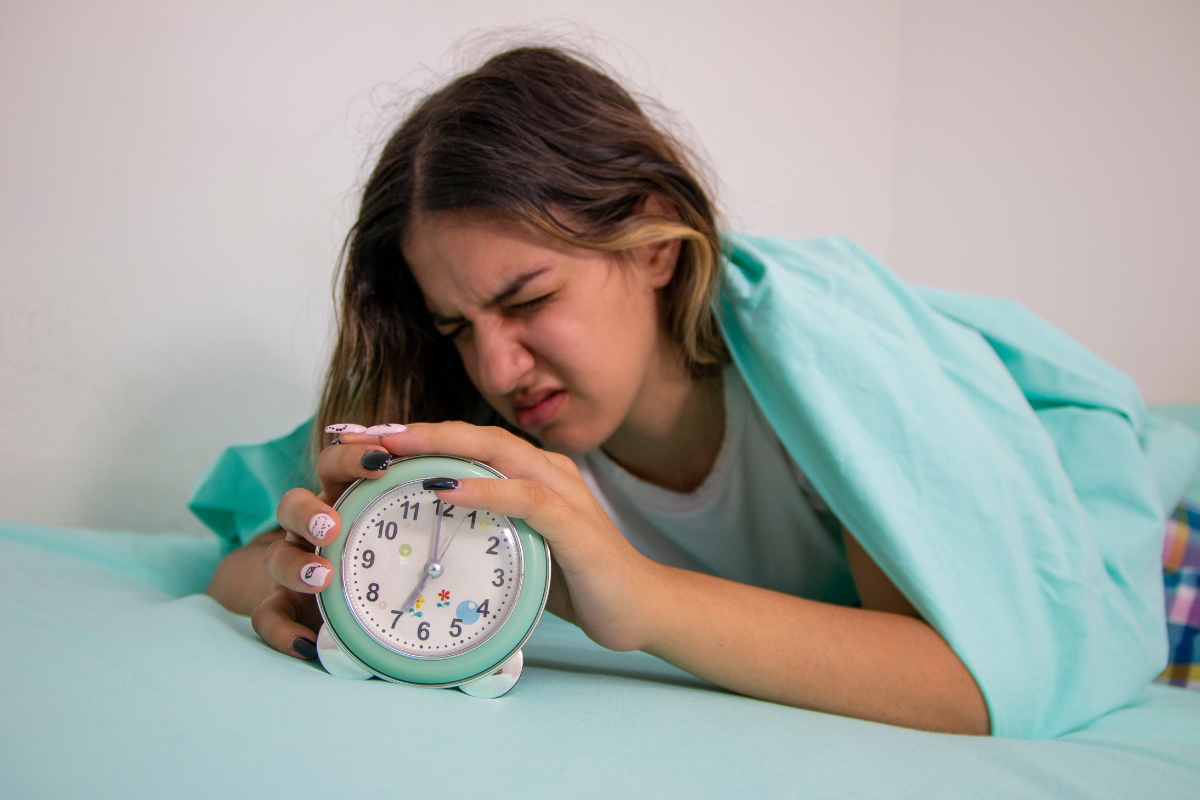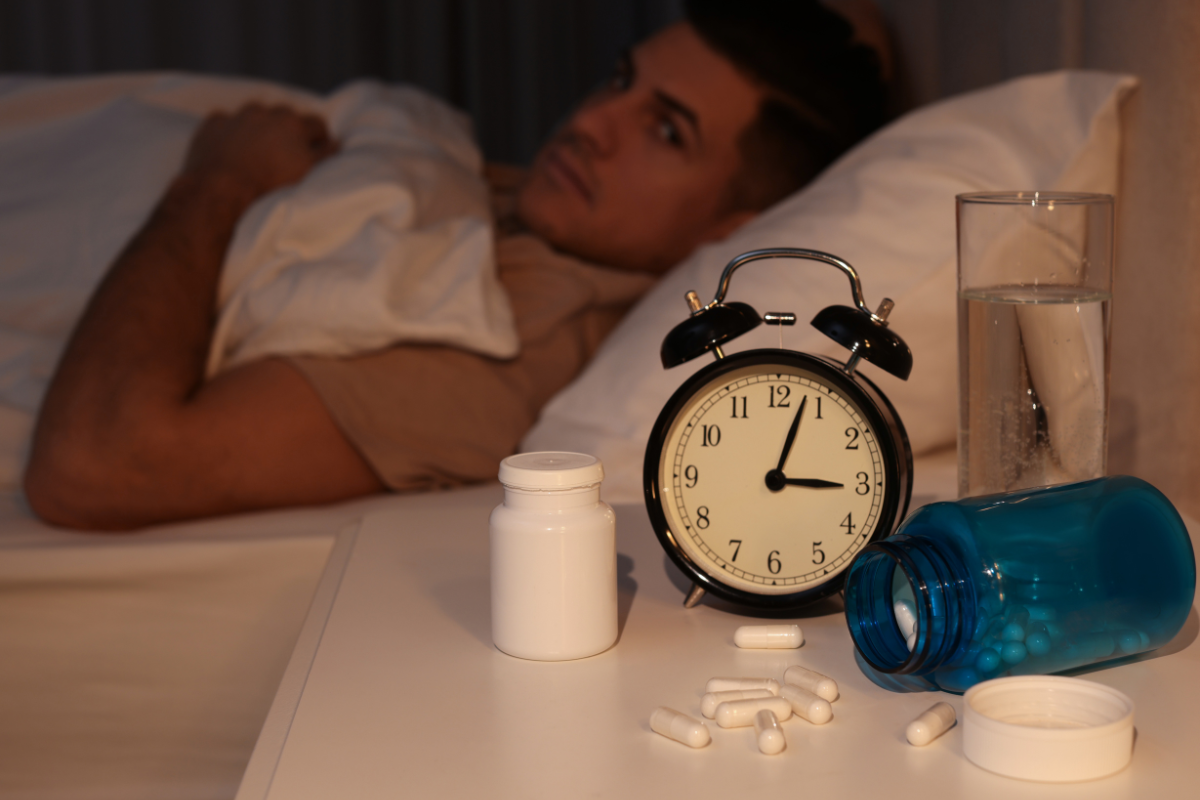Are you struggling to sleep at night or wake up feeling exhausted despite a full night’s rest? You may be experiencing Circadian Rhythm Disorders in Delhi, a common yet often overlooked sleep condition. In today’s fast-paced city life, irregular schedules, exposure to screens, and stress can disrupt your body’s internal clock, affecting your sleep quality and overall health. Fortunately, JCS Lung & Sleep Centre offers specialized evaluation and treatment plans to help Delhi residents restore healthy sleep cycles.
What Are Circadian Rhythm Disorders?
The circadian rhythm is your body’s natural 24-hour clock, regulating sleep-wake cycles, hormone release, and other physiological functions. When this rhythm is disrupted, it can lead to a Circadian Rhythm Disorder (CRD).
Common types of CRDs include:
- Delayed Sleep Phase Disorder (DSPD) – Trouble falling asleep until late at night.
- Advanced Sleep Phase Disorder (ASPD) – Feeling sleepy early in the evening and waking too early in the morning.
- Shift Work Sleep Disorder – Irregular sleep patterns due to night or rotating shifts.
- Jet Lag Disorder – Temporary disruption caused by rapid travel across time zones.
Moreover, CRDs can significantly impact your daily life, causing fatigue, irritability, reduced focus, and even long-term health problems if left untreated.
Causes of Circadian Rhythm Disorders in Delhi Residents
Delhi’s urban lifestyle often contributes to disrupted sleep cycles. The main causes include:
- Irregular Work Schedules
Shift workers or professionals with extended hours often experience sleep disruptions. - Excessive Screen Time
Using phones, laptops, or TVs before bed suppresses melatonin production, making it harder to fall asleep. - Stress and Anxiety
High-stress levels can delay sleep onset or cause frequent nighttime awakenings. - Environmental Factors
Pollution, noise, and bright city lights can interfere with your natural sleep-wake cycle. - Lifestyle Choices
Late-night meals, caffeine, and alcohol consumption may further disturb your circadian rhythm.
Symptoms of Circadian Rhythm Disorders
Recognizing CRD symptoms early is crucial for timely intervention. Symptoms commonly observed in Delhi residents include:
- Difficulty falling asleep or waking up at desired times
- Daytime fatigue and sleepiness
- Poor concentration and memory lapses
- Mood swings, irritability, and anxiety
- Reduced work productivity
In addition, children with circadian rhythm issues may exhibit behavioral problems, hyperactivity, or poor school performance.
Diagnosis: How JCS Lung & Sleep Centre Can Help
Early and accurate diagnosis is critical. At JCS Lung & Sleep Centre in Delhi, we use advanced diagnostic techniques to evaluate your sleep patterns, including:
- Sleep History Assessment – Detailed discussion about your sleep habits, lifestyle, and medical history.
- Polysomnography (Sleep Study) – Overnight monitoring to measure brain activity, eye movements, heart rate, and breathing patterns.
- Actigraphy – Wearable devices that track sleep-wake cycles over several days or weeks.
- Home Sleep Studies – Convenient at-home assessments for patients who cannot visit the clinic.
Therefore, once your sleep patterns are evaluated, our specialists develop a personalized treatment plan to restore your circadian rhythm.

Treatment Options for Circadian Rhythm Disorders in Delhi
At JCS Lung & Sleep Centre, we offer evidence-based, patient-focused treatments:
1. Behavioral and Lifestyle Modifications
- Establish a consistent sleep schedule
- Avoid screens 1–2 hours before bedtime
- Reduce caffeine and alcohol intake
- Practice relaxation techniques such as meditation or deep breathing
2. Light Therapy
- Exposure to bright light in the morning helps reset your internal clock
- Evening light avoidance prevents delayed sleep onset
3. Chronotherapy
- Gradual adjustment of sleep times to align with the desired schedule
- Effective for delayed or advanced sleep phase disorders
4. Medication
- Short-term use of melatonin to regulate sleep cycles
- Other medications prescribed based on individual needs
5. Cognitive Behavioral Therapy for Insomnia (CBT-I)
- Addresses negative thought patterns that interfere with sleep
- Proven to improve sleep quality and reduce long-term dependence on medication
Tips for Preventing Circadian Rhythm Disorders in Delhi
Even after treatment, maintaining healthy sleep habits is essential. Here are practical tips for Delhi residents:
- Stick to a consistent sleep schedule, even on weekends
- Dim lights in the evening and reduce screen exposure
- Engage in regular physical activity during the day
- Limit caffeine intake after 3 PM
- Create a quiet, dark, and comfortable sleep environment
- Avoid heavy meals right before bedtime
Moreover, staying mindful of environmental and lifestyle factors can prevent CRDs from recurring.
Why Choose JCS Lung & Sleep Centre in Delhi?
Choosing the right sleep specialist is crucial for effective treatment. JCS Lung & Sleep Centre offers:
- Expertise: Experienced sleep specialists trained in diagnosing and treating complex sleep disorders
- Advanced Diagnostics: In-clinic and at-home sleep studies for accurate evaluation
- Personalized Care: Tailored treatment plans for adults, children, and shift workers
- Convenience: Flexible appointments for Delhi residents
- Proven Results: Improved sleep quality and overall well-being for patients
As a result, patients in Delhi trust JCS Lung & Sleep Centre to restore healthy sleep patterns and improve daily life.
Comparison Table: Circadian Rhythm Disorders vs. Other Sleep Disorders
| Feature | Circadian Rhythm Disorder | Insomnia | Sleep Apnea |
|---|---|---|---|
| Cause | Misaligned body clock | Stress, lifestyle | Airway obstruction |
| Symptoms | Trouble sleeping/waking at right times | Difficulty falling asleep | Loud snoring, pauses in breathing |
| Treatment | Light therapy, CBT-I, lifestyle changes | CBT-I, medication | CPAP, oral devices, lifestyle changes |
| Common Age | All ages | Adults | Adults, sometimes children |
| Specialist | Sleep specialist | Sleep clinic | Pulmonologist / Sleep specialist |
FAQs About Circadian Rhythm Disorders in Delhi
Symptoms include difficulty falling asleep or waking at the desired time, daytime fatigue, mood swings, and reduced concentration. A sleep specialist can confirm the diagnosis.
Yes. JCS Lung & Sleep Centre provides personalized treatment including light therapy, behavioral therapy, and home sleep studies.
Yes. Children may have delayed or advanced sleep patterns, which can affect school performance and behavior. Early intervention is recommended.
Treatment duration varies depending on the type of disorder, patient adherence, and lifestyle adjustments. Typically, patients see improvement in a few weeks.
Mild cases may respond to lifestyle changes, but moderate to severe disorders often require professional evaluation and therapy.
Yes, convenient at-home sleep studies are available for Delhi residents who cannot visit the clinic.

